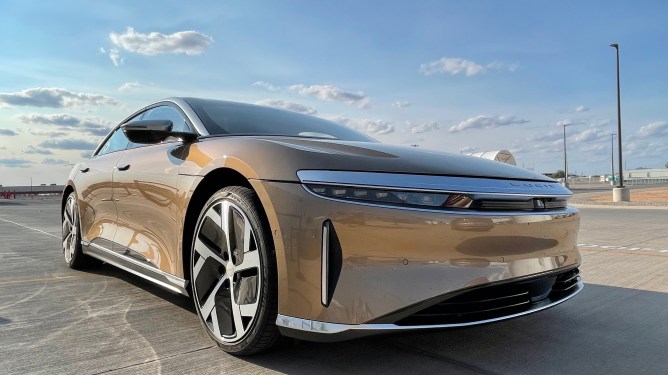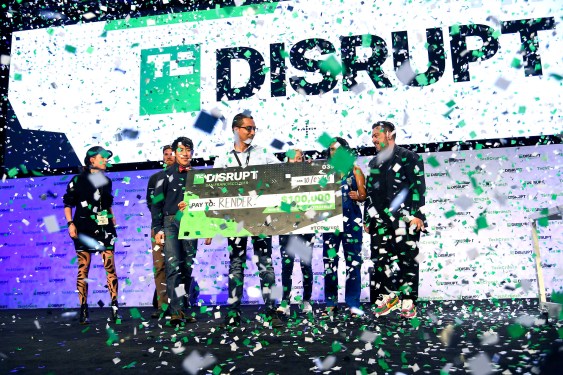In a significant move for the electric vehicle (EV) industry, Lucid has reached an agreement with Tesla to give owners of its luxury EVs access to Tesla’s network of superchargers. This development follows the path of several other major automakers that have announced their intention to adopt Tesla’s charging standard in recent months.
Ford Paved the Way
In May 2023, Ford became the first major automaker to announce its decision to give its EV owners access to Tesla’s chargers via an adapter. The company stated that its next generation of EVs would be integrated with Tesla’s charge port, known as the North American Charging Standard (NACS), starting in 2025.
Other Automakers Follow Suit
Since Ford’s announcement, several other automakers have followed suit. General Motors (GM), Rivian, Honda, Mercedes, Hyundai, Kia, Toyota, and Subaru have all announced their intention to adopt Tesla’s charging standard.
Lucid Joins the Ranks
Lucid was one of the last remaining holdouts in this regard. The company has now agreed to provide its EV owners with an adapter that will give them access to thousands of Tesla chargers, known as Superchargers. Lucid will incorporate Tesla’s NACS charging port into its EVs starting in 2025.
CEO Peter Rawlinson Comments
"We believe that a unified charging standard, backed by the nationwide rollout of future-ready higher-voltage charging stations, will be a critical step in empowering American consumers to adopt electric vehicles," said Peter Rawlinson, CEO and CTO at Lucid. "Adopting NACS is an important next step to providing our customers with expanded access to reliable and convenient charging solutions for their Lucid vehicles."
The Benefits of Unified Charging Standard
A unified charging standard will provide several benefits for EV owners. Firstly, it will make it easier for them to charge their vehicles on the go. Secondly, it will reduce the complexity and cost associated with owning an EV.
Lucid’s Decision: Access Over Quickness
While Lucid’s decision to adopt Tesla’s charging standard may seem like a backward step at first glance, it is actually a strategic move. The company’s luxury Air sedans have a 900-volt electric architecture, which has several benefits over the more common 400-volt architecture used by most EVs.
800-Volt Electric Architecture: A Game-Changer
The 900-volt electric architecture used in Lucid’s vehicles is a game-changer. It offers several benefits over the more common 400-volt architecture, including better range and faster charging times.
The Catch: Limited Charging Infrastructure
However, there is a catch. Most public chargers have 400-volt systems, which means that EVs with 800-volt electric systems like Lucid’s will not be able to charge as quickly as they might with chargers designed for them.
Lucid Spokesperson Comments
"This is a small point, considering how rare 800-volt fast chargers are out in the world," said Andrew Hussy, a Lucid spokesperson. "Tesla’s current charging system helps Lucid customers with the convenience of more charging options."
The Future: Higher Voltage Charging Stations
However, Tesla is planning to start offering much higher voltage charging stations in the future. This will enable EVs with 800-volt electric systems like Lucid’s to charge at their maximum capacity.
Conclusion
In conclusion, Lucid’s decision to adopt Tesla’s charging standard is a significant development for the EV industry. It provides EV owners with expanded access to reliable and convenient charging solutions, which is essential for widespread adoption of electric vehicles.
Related Topics
- Electric vehicle charging
- Electric vehicles
- North American Charging Standard (NACS)
- Tesla
- Lucid
Sources
- [1] "Lucid Announces Partnership with Tesla to Adopt NACS Charging Standard" – Press Release, Lucid Motors
- [2] "Ford to Give EV Owners Access to Tesla’s Chargers via Adapter" – Article, The Verge
- [3] "General Motors to Adopt Tesla’s Charging Standard for Its EVs" – Article, CNBC



